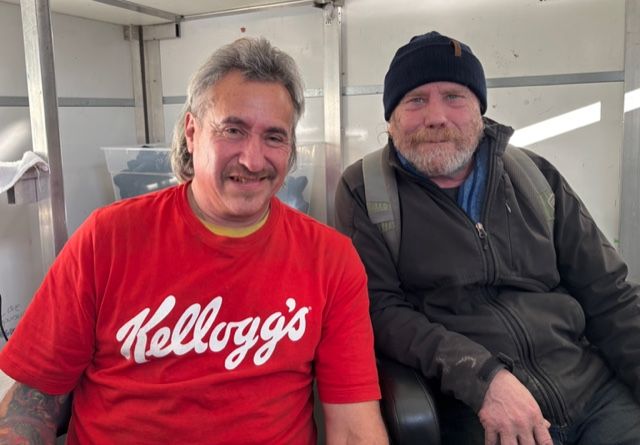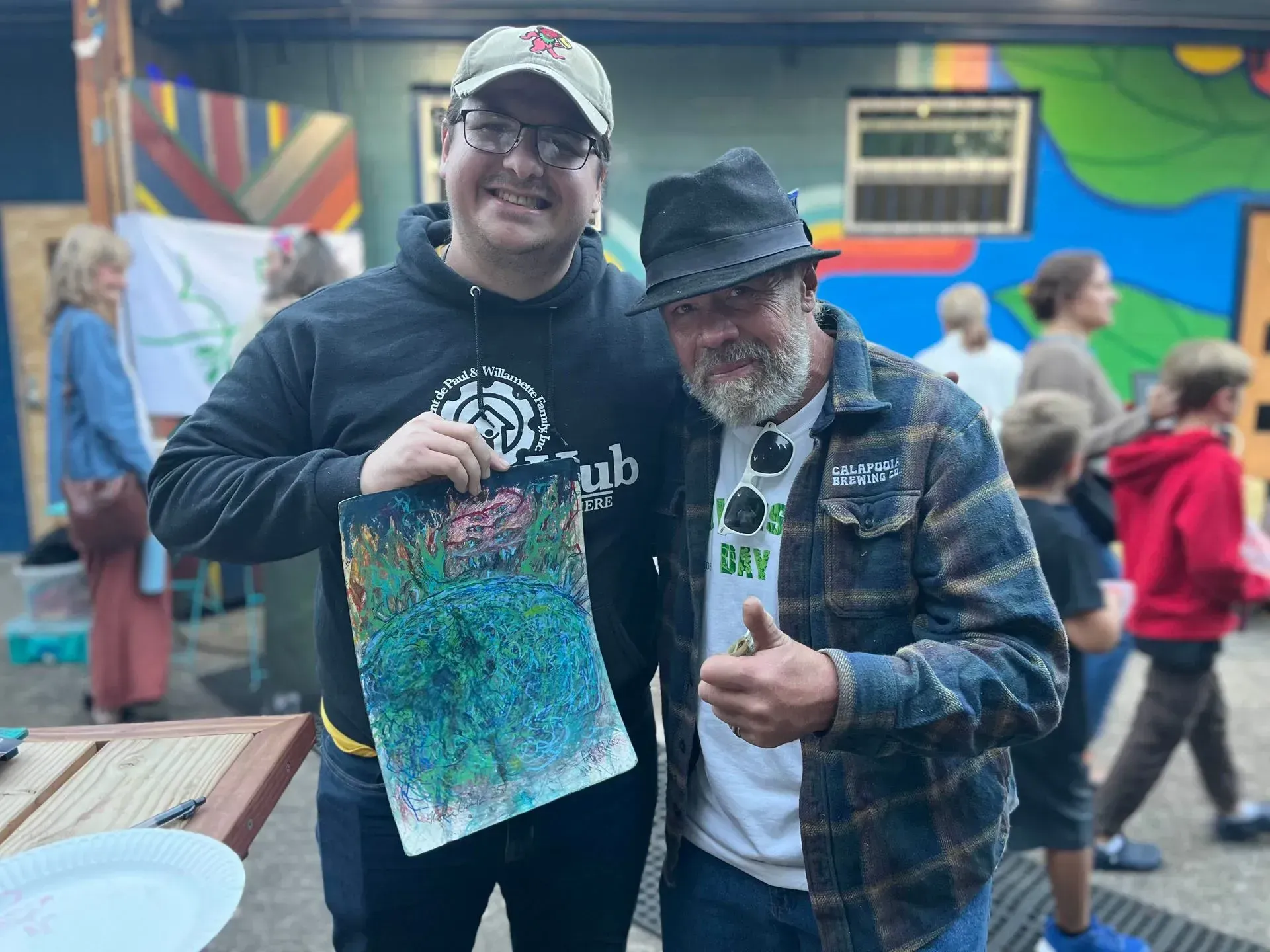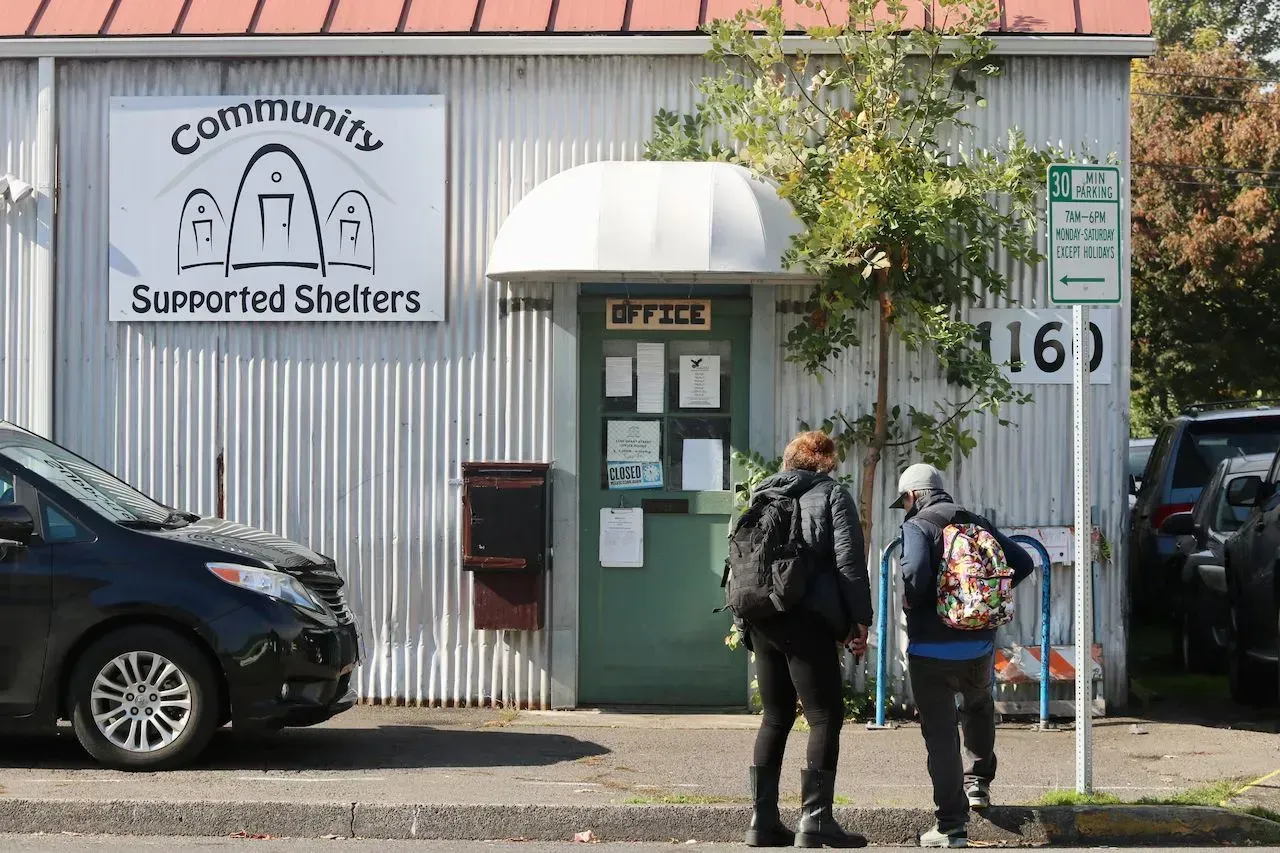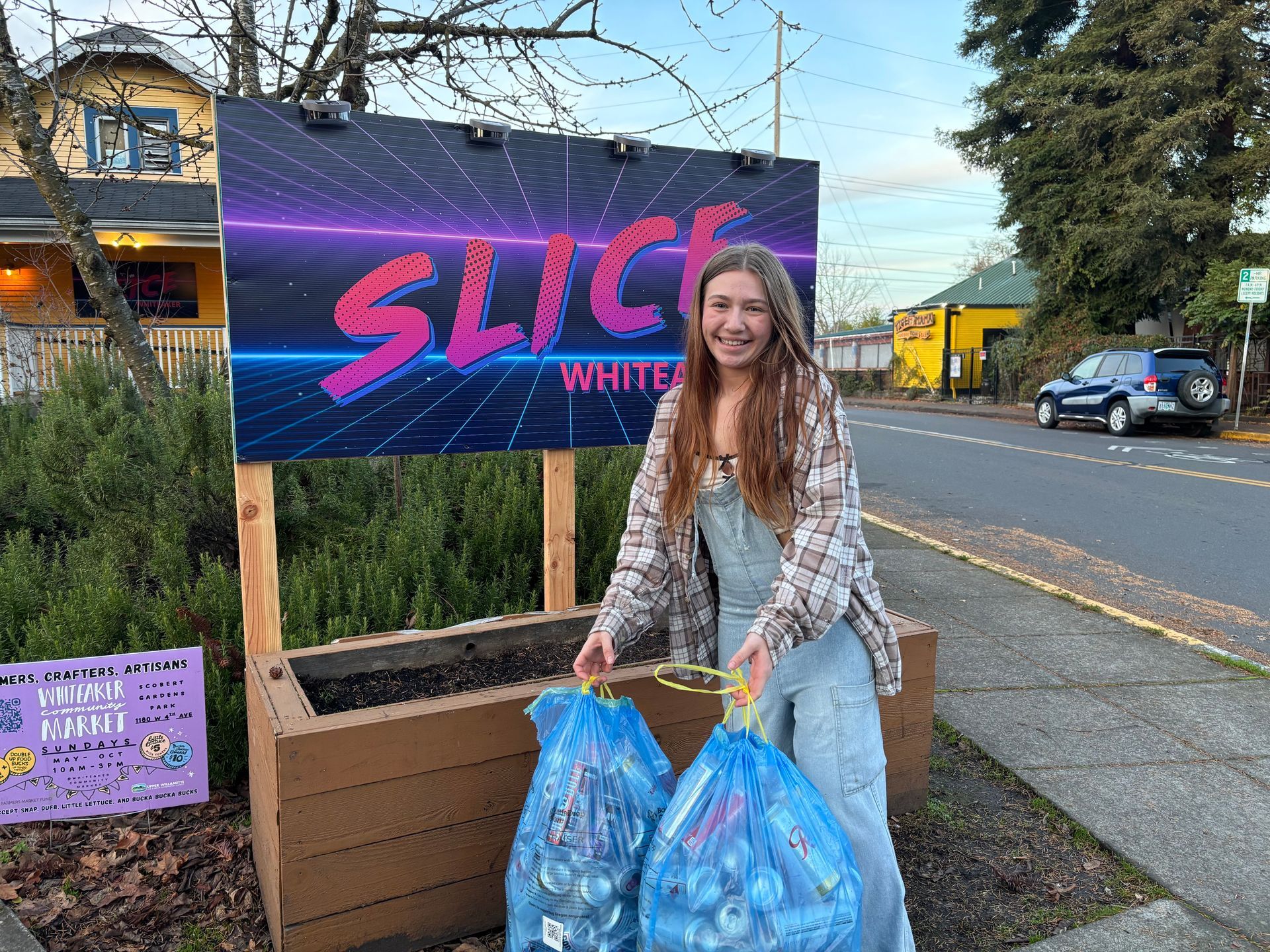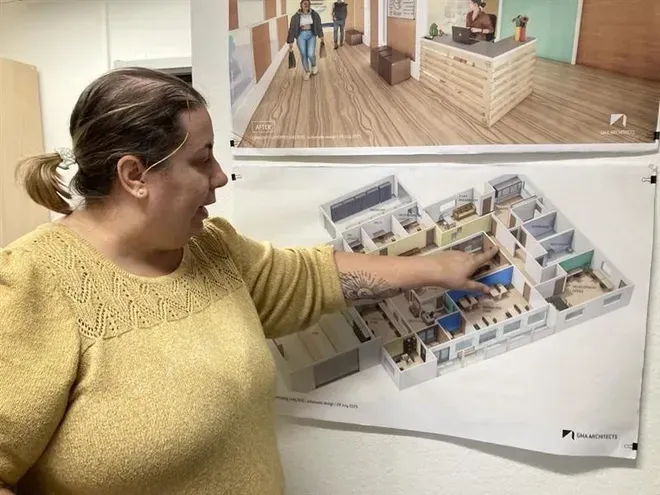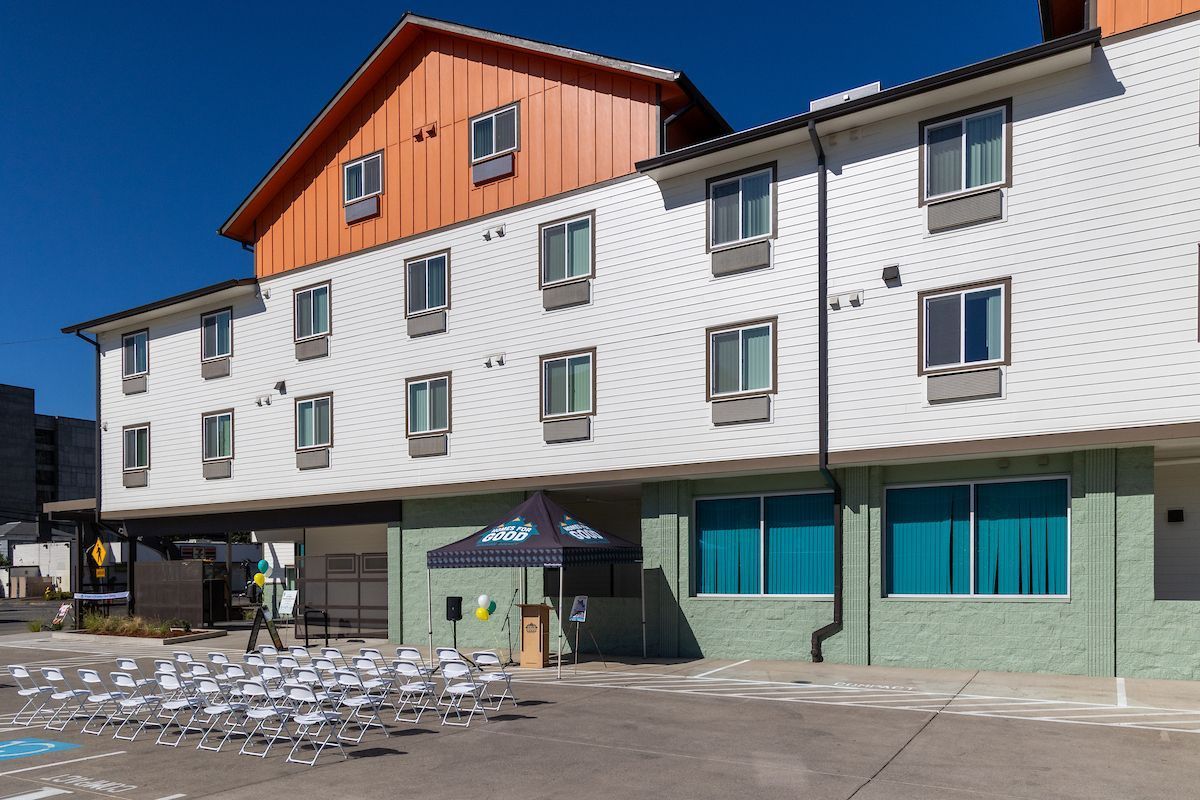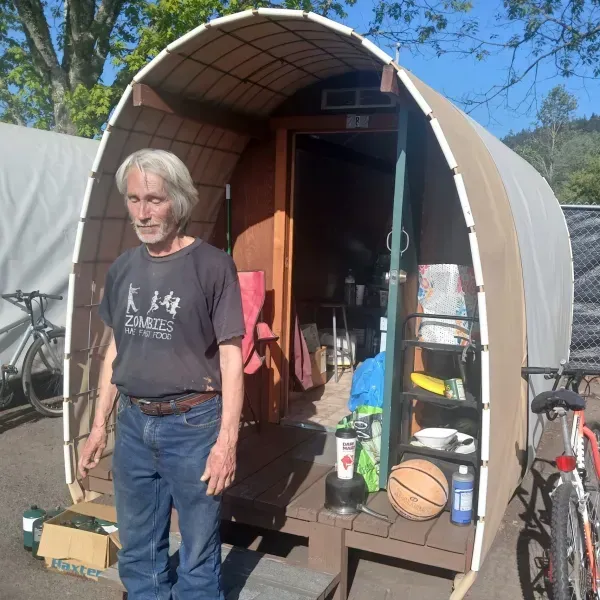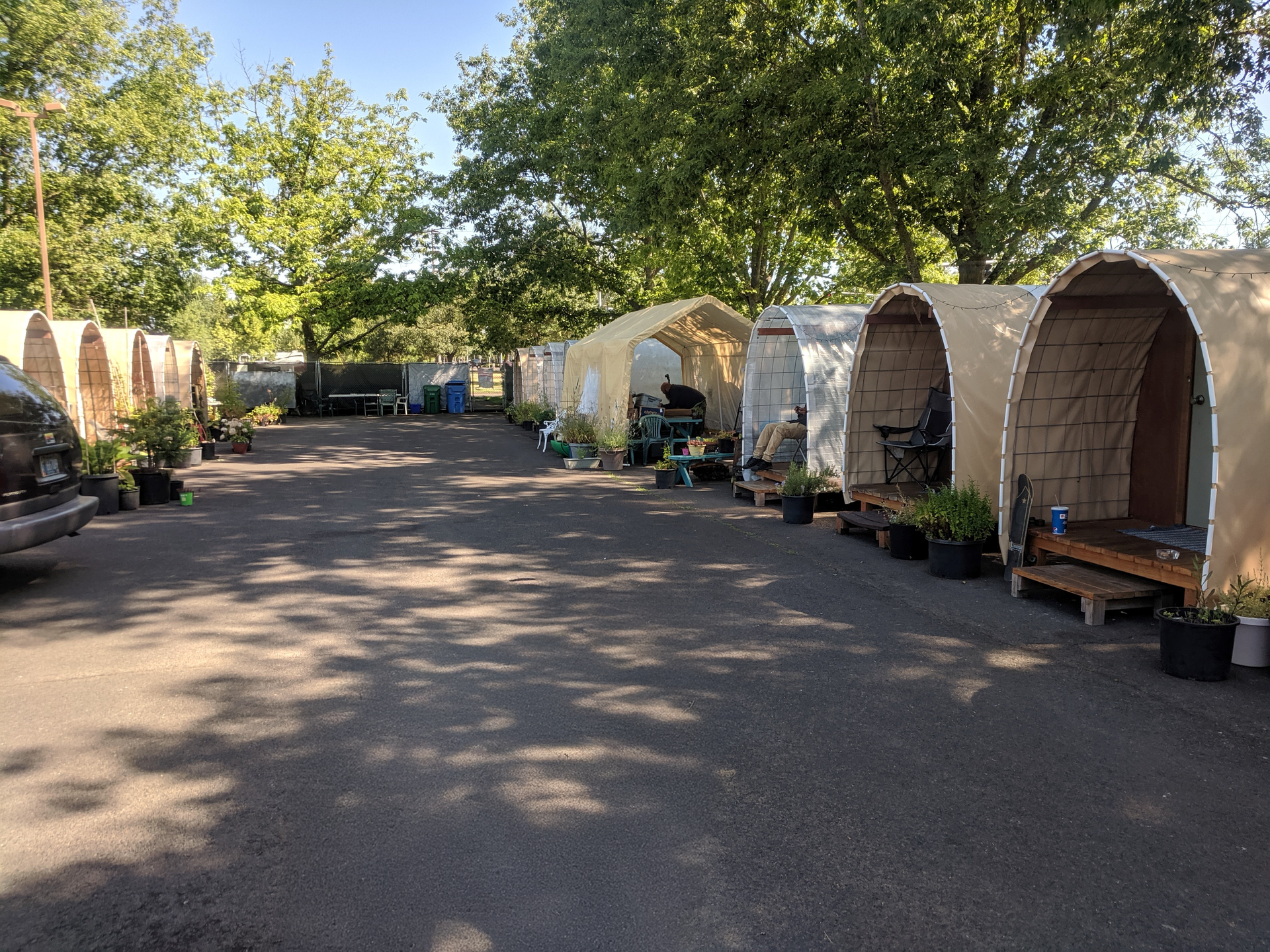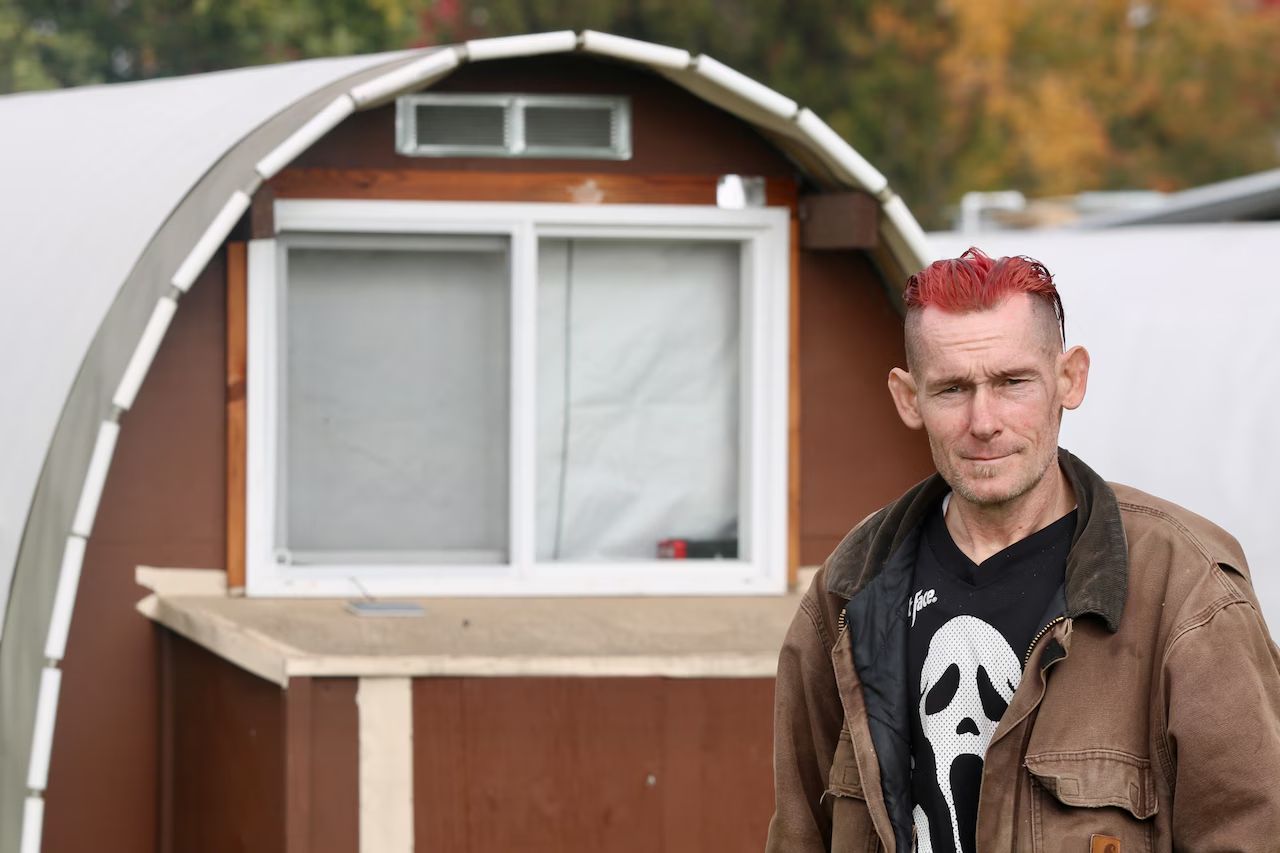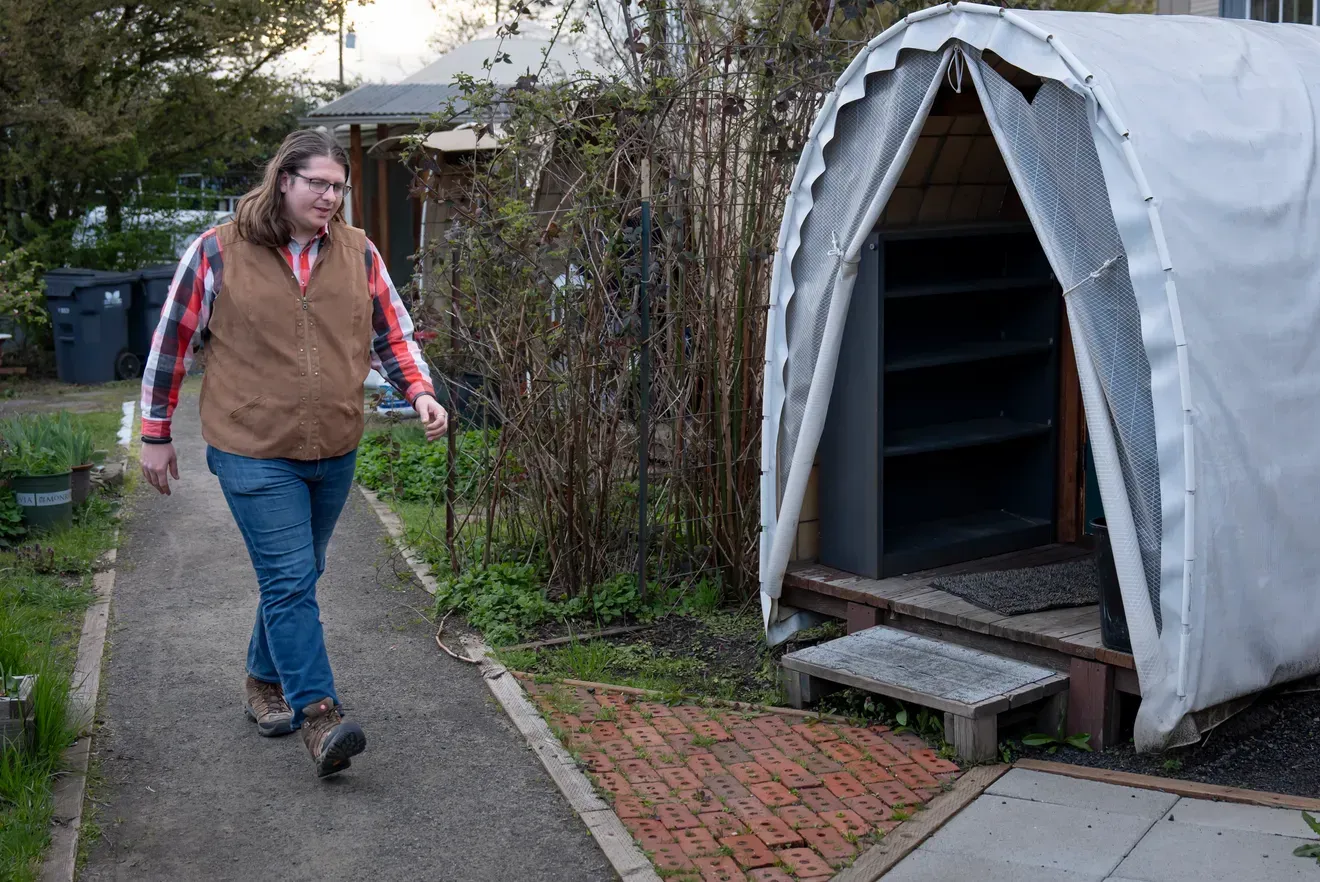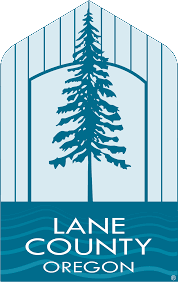Jim Schmidt and Emmet Band
Oct. 31, 2014
Jim Schmidt: “I am doing what I like and doing something good as a result of it.”
Emmet Band: “I don’t know what better service you could do.”
Jim Schmidt, 63, and Emmet Band, 67, are volunteers for Community Supported Shelters. Jim is a retired professional photographer and Emmet owned and managed Adaptive Engineering Services in Sonoma, California, a shop that built custom wheelchairs and other specialized devices for people with profound disabilities. Both are veterans of the Vietnam War, Jim serving in the Army and Emmet in the Marines, and are active volunteers for a number of community organizations.
Q: You two met through work with veterans groups working for peace. How did you get involved in that?
Jim: All the male members in my family have served in the military, but nobody ever talked about it. In 2002, when the buildup toward the war in Iraq was in full swing, I realized I had been doing the same thing for thirty years and I just couldn’t do it anymore. I had to find ways to express my feelings about the ravages of war and to support others who have been through the same things.
Emmet: I got involved with a group called Veterans for Peace because I believe we need to find ways to live without resorting to the violence of war, that’s fundamental to creating the kind of society where people can flourish.
Q: What attracted you to volunteer with Community Supported Shelters?
Jim: I saw a little column in the Eugene Weekly last winter. I think it had a picture of a guy sitting in his Hut, talking about what a difference it had made in his life and a little blurb from Erik [de Buhr, executive director of CSS] looking for volunteers. I thought this was a really good fit for me, not fine carpentry or really polished building skills needed but just the ability to cut something off at a right angle and to screw that into another something that was cut correctly. It’s a fun as well as rewarding process, and at the end of the day we’ve done something to improve the life of someone who has far less than we have.
It fits in with my philosophy of not being able to change the world and not even really attempting to anymore, but thinking that if I can change a little corner of the world and other people will change their little corner of the world then we might make some progress. And I kept trying to get people in my little email list involved in it. There are five of us that came out of that list who are involved now.
Emmet: Yeah, Jim was probably badgering people to get involved and I eventually said, “yeah, sure.” For me, it boils down to providing someone with shelter. It’s wonderful to create something with your hands and stand back and say to yourself, “that looks nice,” but with Community Supported Shelters we give that creation to someone else. When you give what you helped make to someone, it is a gift for both parties, and when you give housing—wow, what an impact!
We recently built a Hut for a couple who had been sleeping in a tent. When you’re 60 years old, crawling out of a tent on a cold morning is not something you want to be doing. What a huge deal to be able to stand up inside your home and to walk out a door, as opposed to crawling out of a tent on a frosty morning.
Jim: I understand that when Erik was doing his preliminary research the three basic criteria he came up with for shelter were: “off the ground,” “out of the rain,” and “a door that locks.” Those sounds so fundamental to us but they can make a huge difference for people, and we can contribute to that with a few hours a week of sweat equity. That’s a good deal.
Q: What has your work experience been like with CSS?
Jim: Positive. I sympathize with Erik a little bit putting together a volunteer crew. You can’t really treat them like you would treat eight employees as far as when they show up, how long they work, how hard they work, how well they do the job. But he’s gotten very lucky in a lot of ways. He has attracted some, if not highly talented people, at least highly dedicated people.
Emmet: You’ve got people who are committed, you’ve got people who have skills, you’ve got people who can work together—it’s a bloody miracle that all that has come together to produce these things, these Conestoga Huts. My first work was with Jim on the decks and it’s been amazing to see how those evolved.
Jim: With the decks, there was a point that you had to crawl under the deck to secure it to the Hut. And now the Huts are closer to the ground than they used to be. So getting under there is really getting difficult, we would have to find somebody not only young but skinny. But now there’s a way to do that without crawling under the deck.
I really have a lot of admiration for the way that Erik processes things and works continually to evolve the product. He’s not afraid to tinker and he’s a good engineer, just innately. You can see the way that he envisions the whole thing and the way it works now, but he doesn’t let his ego get in the way if there is a better way to do something. We just do it. He just kind of smiles and nods and says, ”oh, yeah,” and that’s cool.
Q: How do you think the Conestoga Huts affect our community?
Emmet: It’s huge. Twenty-six Huts are out in the community. We’ve affected 26 people’s lives—some folks are doubled up, so maybe 30 or 35 people’s lives—in real significant fashion, give them a chance to build something on this base and it’s in our community, it’s in our backyard, and that’s where we need to focus. It serves people on a very basic level and I don’t know what better service you could do. You can feed somebody and that’s good, it keeps them going for a day. But here you’ve got something that’s day and night, your stuff is secure, you’re dry, you’re not sleeping in the dirt, you’re not crawling out on a muddy tarmac or a mud pile.
Jim: And maybe it can lead them out of the vicious deadly cycle that some are caught in, maybe give them a six-month respite. The fact that there is still such a thing as homelessness is heartbreaking, that a society cares so little for its individual members that it lets this happen, that it lets the need for what we’re doing occur at all.
On the other hand, there it is, we can theorize about the world as it should be or we can try to change what we see around us, to make things a little better for a few people at a time. And, especially when we have cold weather like we’ve had recently, we could be saving lives. We could be preventing the next Tom Egan [an Army veteran who froze to death on the streets of Eugene in 2008].
You see the need. I didn’t go through life making great decisions, that’s for sure, but through more a matter of luck than anything else, I landed in a position where I can help and, by my own personal standard, it would be the worst sort of immorality if I didn’t help. If I have the means to help and I didn’t, I couldn’t live with the implications of that at all. And I like making noise and I like making sawdust and I like drilling holes and driving screws. I like the atmosphere of the woodshop. I’ve always liked that. I like the smells. I like every part of it. So, wow, what the hell, here I am doing what I like and doing something good as a result of it. It’s a wonderful combination of things.
Q: Does your work with CSS connect with your veterans’ support work.
Emmet: Whether we’re building Huts, or working in the Dining Room [a Food for Lane program serving free meals], or helping at the Egan Warming Centers, an unfortunately large percentage of the people we are serving are veterans.
Jim: I’ve seen far too many veterans caught in the heartbreaking cycle of homelessness. We can and should question why that happens to the men and women who have served their country, but a Hut is something tangible we can do for them. It’s not directly veterans’ support work, but if we help a veteran along the way, all the better.
Q: What would you say to someone considering volunteering for CSS?
Jim: Oh yeah, it’s fun stuff. I can’t imagine anybody walking through the door that we couldn’t find something appropriate for them to do, ideally something that fits their skill level, but it’s also an opportunity to learn skills. We had little kids on our Hut-raising a week or so ago who are all going to want cordless drills for Christmas. In just a few short minutes, you can show somebody the skills to use that tool properly and not hurt themselves and do a job effectively. So I think, yeah, I’d encourage anybody to drop by if they want to.
Emmet: It’s just a wonderful thing, from beginning to end. It’s pretty amazing. It’s interesting that you get Erik and Fay [de Buhr, CSS fundraising director] and the people who are building the Huts working in conjunction with whoever owns the property, whether it’s an individual or a church, and they’re working with St. Vinny’s, who provide the latrines so that all of a sudden the residents aren’t searching for a bathroom or a bush. It really is community-supported shelter and there’s a spot for anybody who wants to help.
News & Events
To stay connected to CSS, subscribe to our quarterly newsletter. If you are a member of the media who is seeking info, contact
community@cssoregon.org.
